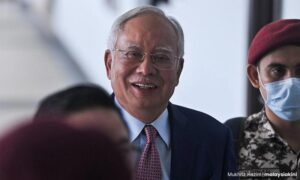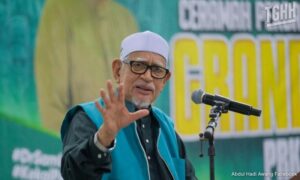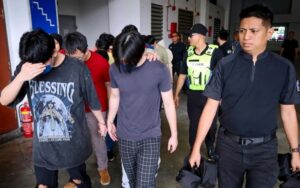By Ida Lim | Malay Mail
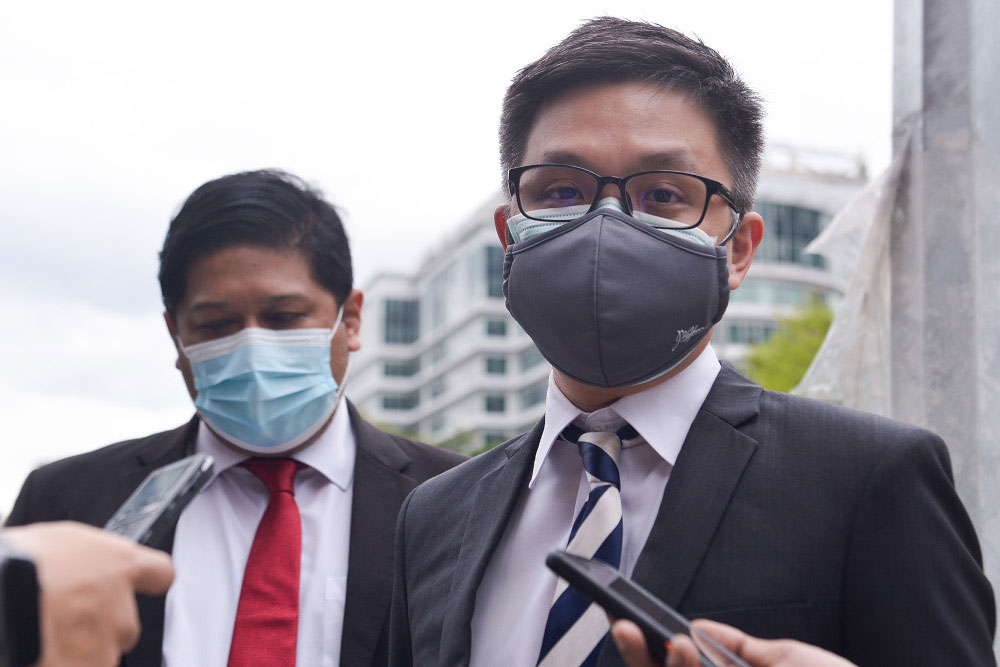
The Health Ministry’s blanket ban on events related to the Melaka state election was against the law and the government should have instead allowed any activities where physical distancing is possible, a lawyer has insisted.
Lawyer New Sin Yew, who is also co-chair of the Bar Council’s Human Rights Committee, argued that the total ban on any election gatherings during the campaign period would be contrary to the legal rights given to Malaysians under the Federal Constitution and the Election Offences Act.
New noted that the Melaka state election on November 20 is the first since the Sabah state election last year, which he said triggered waves of COVID-19 infections nationwide, with the Melaka election campaign period to be from November 8 until November 19.
Ahead of the Melaka state election, the Health Ministry (MOH) on October 24 announced that “any activity, gathering or social events related to the election is not allowed, including the organising of election machinery launches” from October 25 to November 27, with the aim of reducing the spread of COVID-19 infections and to avoid drastic rise in cases. The extended prohibition period covers both before, during, and after the campaign for the Melaka state polls.
The same ban is also contained in the “Negative List” of the latest standard operating procedures for states under Phase 4 of the National Recovery Plan — including Melaka — on the National Security Council’s website.
The Health Ministry also said the ban was in line with the Negative List’s prohibition on any activities that could cause mass gathering at a location and which would make physical distancing difficult.
New noted that the Health Ministry had based its prohibition on Melaka election-related activities on regulation 10(1) of a set of regulations known as the Prevention and Control of Infectious Diseases (Measures within Infected Local Areas) (National Recovery Plan) Regulations 2021 (NPR Regulations).
Regulation 10(1) states that “no person” shall “gather or be involved in any gathering in any premises” whether for religious, wedding, sports, recreational, social or cultural purpose.
New also noted that the same regulations’ regulation 17(1) would result in a maximum RM50,000 fine or maximum six-month jail or both if anyone is convicted in court of having breached regulation 10(1).
“Given the MOH’s stance, candidates and political parties are effectively prohibited from holding any physical election campaign activities in the lead-up to the Melaka State Election. This is unlawful for two reasons,” New told Malay Mail regarding the blanket ban.
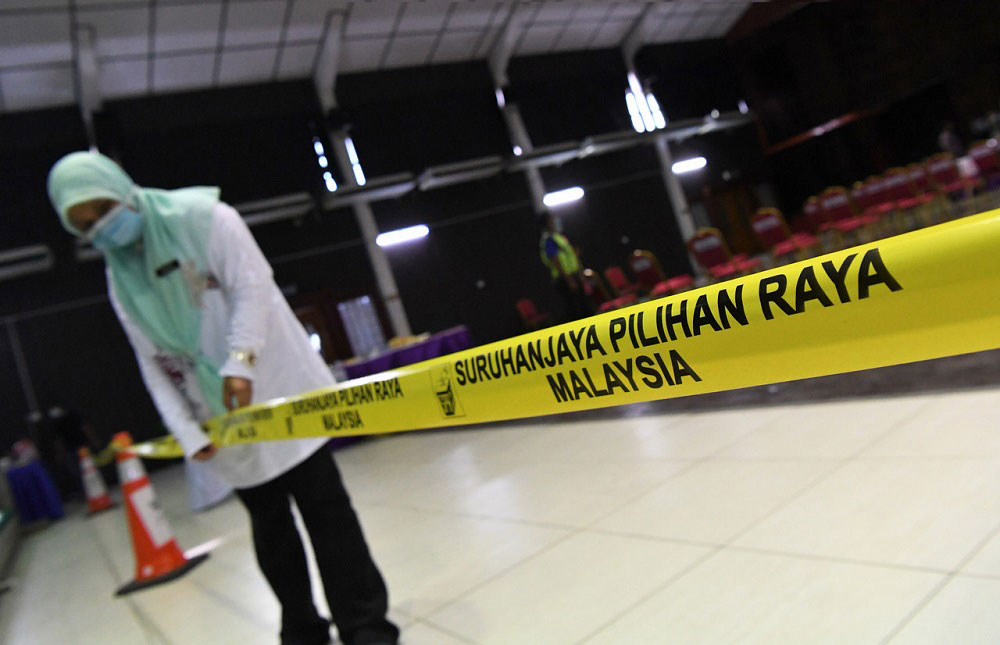
Regulations cannot override an Act
For the first reason, New highlighted that section 24B of the Election Offences Act 1954 allows an election candidate or his election agent to hold an election campaign during the campaign period.
Section 24B also states that an election candidate or his election agent may — during the election campaign period — “hold, convene or organise any open public meeting, open public rally, open public display or open public entertainment” or “give any open public address or open public lecture” in the constituency that the candidate is contesting if he has a police permit for the event or activity.
New argued that this meant the total ban on election-linked activities for the campaign period during the Melaka state election was unlawful.
“The NRP Regulations is a subsidiary legislation under the Prevention and Control of Infectious Diseases Act 1988 and cannot override section 24B Election Offences Act 1954, which is a primary legislation,” he said.
A primary legislation would include laws enacted by Parliament such as the Election Offences Act, while secondary or subsidiary legislation would cover regulations made under an Act.
New argued that this means any election candidate or their election agent exercising their legal right under section 24B of the Election Offences Act 1954 cannot then be said to be committing an offence under regulation 10 of the NRP Regulations.
“On that basis, the MOH cannot enforce regulation 10 of the NRP Regulations against candidates during the campaign period,” he said.
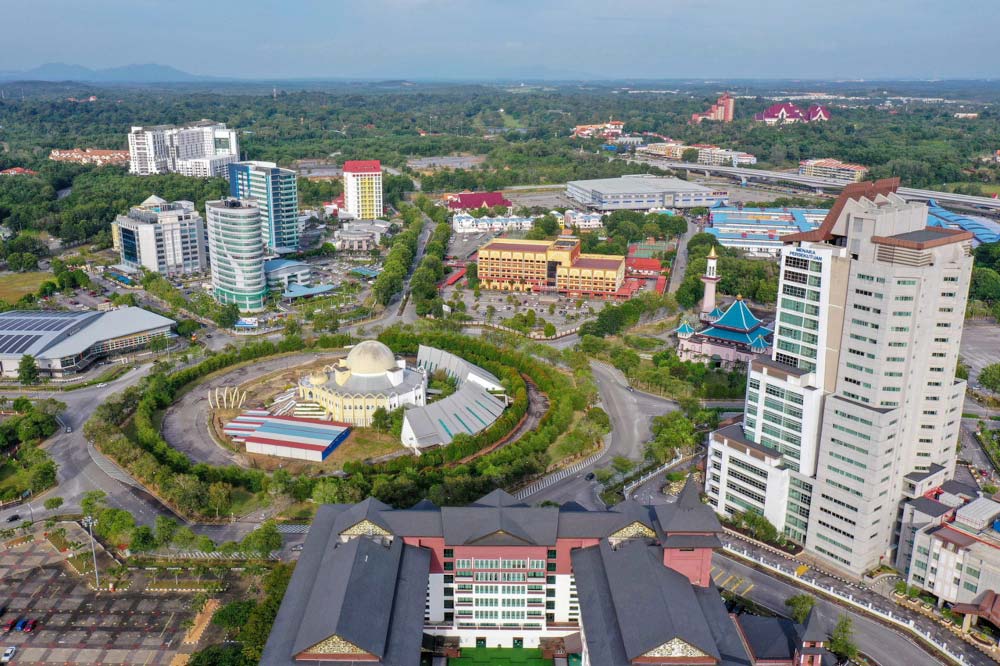
Restrictions allowed for limited grounds, not complete prohibition
Citing the Federal Constitution’s protection of Malaysians’ rights via Article 8 and Article 10, New also said the blanket ban of Melaka election activities would be unlawful due to its total prohibition nature, instead of being mere restrictions or limitations on such activities.
“Second and more fundamentally, the MOH cannot completely prohibit someone from exercising their freedom of assembly even on the grounds of public health.
“Freedom of assembly, enshrined in Article 10 of the Federal Constitution, is an indispensable part of democracy. This is even more so during an election when it is vital for voters to assemble and have a free exchange of information so that they may vote for the best candidate to represent them in the government,” he said.
“Prohibitions on the freedom of assembly will inevitably impact the freedom of association as well as the freedom of speech and expression. These are fundamental rights that allow citizens to engage with and participate in issues that affect their lives and hold to account powerful people and organisations — the foundation of a democratic society,” he said in stressing the importance of such rights.
Article 10(1) states that all Malaysians have the right to freedom of speech and expression, the right to assemble or gather peacefully, and the right to form associations, while Article 10(2) states that Parliament can make laws to impose restrictions that it thinks necessary in the interest of national security or public order.
New pointed out however that Article 10(2) does not include “public health” as a reason that would allow Parliament to limit the right to assemble or to gather, while also arguing that a blanket ban — instead of imposing limits — would make the constitutional right to gather peacefully an illusion.
“Under Article 10(2) of the Federal Constitution, Parliament may restrict freedom of assembly only on grounds of national security and public order.
“Any restriction cannot amount to a complete prohibition otherwise it would render one’s freedom of assembly illusory,” he said.
Citing Article 8(1) which states that all persons are equal before the law, New said any restrictions imposed by Parliament must also be proportionate to the legitimate aim it seeks to achieve.
“In a nutshell, MOH’s blanket ban on any activity, gatherings, or social events related to the Melaka State Election, at such a vital time, is unlawful because: Public health is not a recognised ground to restrict one’s freedom of assembly; such a blanket ban goes beyond a restriction and amounts to a complete prohibition,” he said.
New also said the Health Ministry’s blanket ban “is disproportionate and arbitrary given that most economic sectors and social activities have been relaxed all over the country.”
A solution that would be more proportionate
“Wouldn’t a more proportionate measure be to allow any activities related to the Melaka State Election, but to subject them to strict physical distancing measures and enhanced enforcement? This would ensure a fair balance between the need to safeguard public health and one’s freedom of assembly.
“In conclusion, we should be allowed to exercise our fundamental liberties and democratic rights while public health concerns are being addressed; they need not be mutually exclusive,” New said.
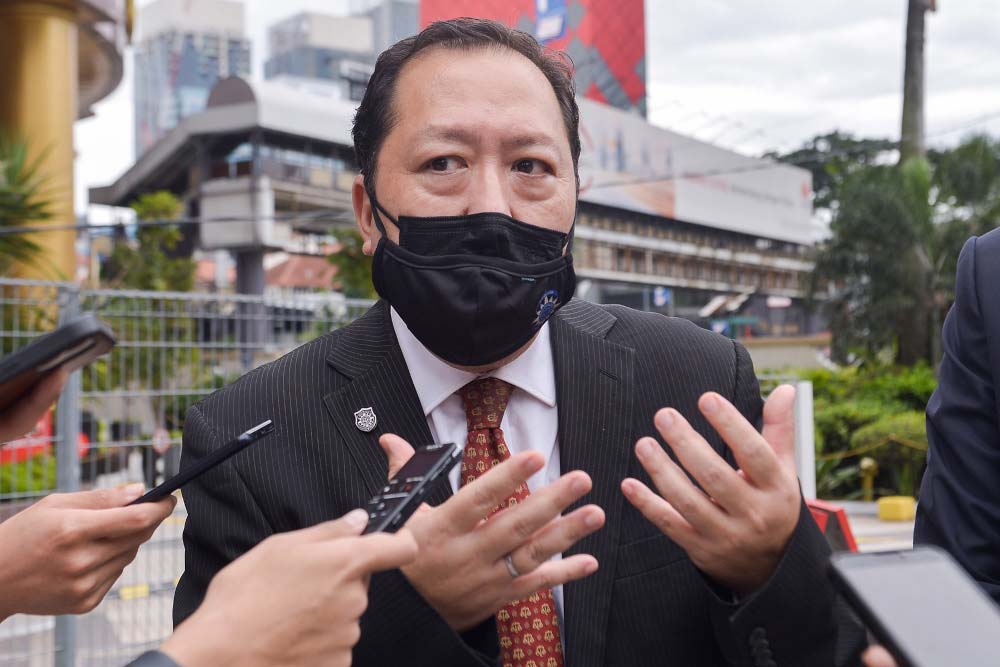
Lawyer Andrew Khoo told Malay Mail that the Election Commission’s (EC) standard operating procedures for the Melaka state election — when it eventually releases them — should facilitate “genuine democracy”.
“The EC’s eventual SOPs should not prohibit in-person rallies and campaigning. SOPs should continue to be along the lines of masks and safe-distancing in open-air ceramahs. Indoor meetings should also follow current SOPs for indoor gatherings.
“The EC’s SOPs should not and do not need to prohibit the exercise of democracy,” he said.
Khoo also pointed out the limitations of having only an online election campaign.
“The argument about online campaigning is flawed. Candidates and parties may have access to the Internet, but do the voters?
“And as long as public broadcasters do not give equal coverage to all political parties, that is an abuse of assets belonging to all taxpayers and a clear bias/favouritism in favour of the government. All TV and radio coverage must be equal, fair, and impartial. The EC must also see to that as part of their SOPs,” he added.
Previously, electoral reform group Bersih 2.0 on October 25 had acknowledged that precautions against COVID-19 are necessary, but had said the total ban suppresses election candidates’ right to campaign and the voters’ right to make informed decisions and would ultimately be a suppression of democracy.
Bersih 2.0 had noted that the Phase 4 of the National Recovery Plan’s (NRP) standard operating procedures (SOP) — which applies to Melaka since October 18 when it moved into Phase 4 — allows social activities and visitations with the condition of half capacity and physical distancing compliance, further arguing that the Health Minister’s ruling which targets election-related activities only is inconsistent with the SOPs.
Bersih 2.0 had urged the Health Minister to reconsider the total ban on physical gatherings and to instead carry out stricter enforcement of standard operating procedures by increasing the number of enforcement officers during the Melaka election, with fines or prosecution against any violators regardless of their party affiliations.
Bersih 2.0 had also suggested that the EC introduce alternative rules for the election campaign period in the Melaka state polls, such as ensuring that all those attending political gatherings or ceramahs are sitting on chairs at least one metre apart, with the speakers and attendees required to wear face masks at all times.
The same rule of mandatory face mask-wearing at all times and sitting at least one metre apart on chairs should also apply to small gatherings at coffee shops and day markets or night markets, Bersih 2.0 said.
Among other things, Bersih 2.0 had said that the EC could impose a maximum limit of five persons in a group to visit house to house, and with the condition that they must not enter the house or must at least be two metres away when speaking to households.

